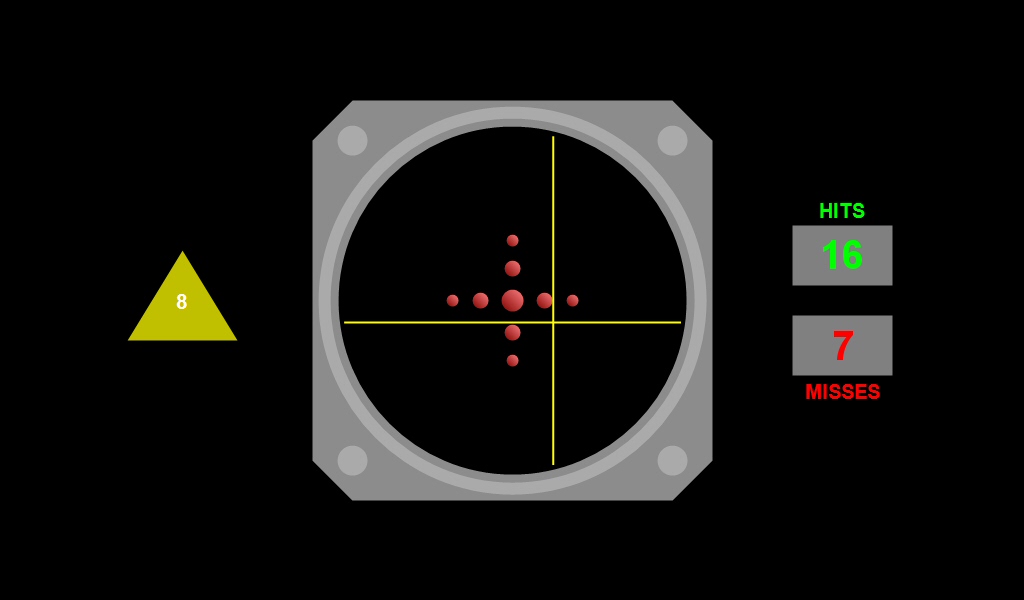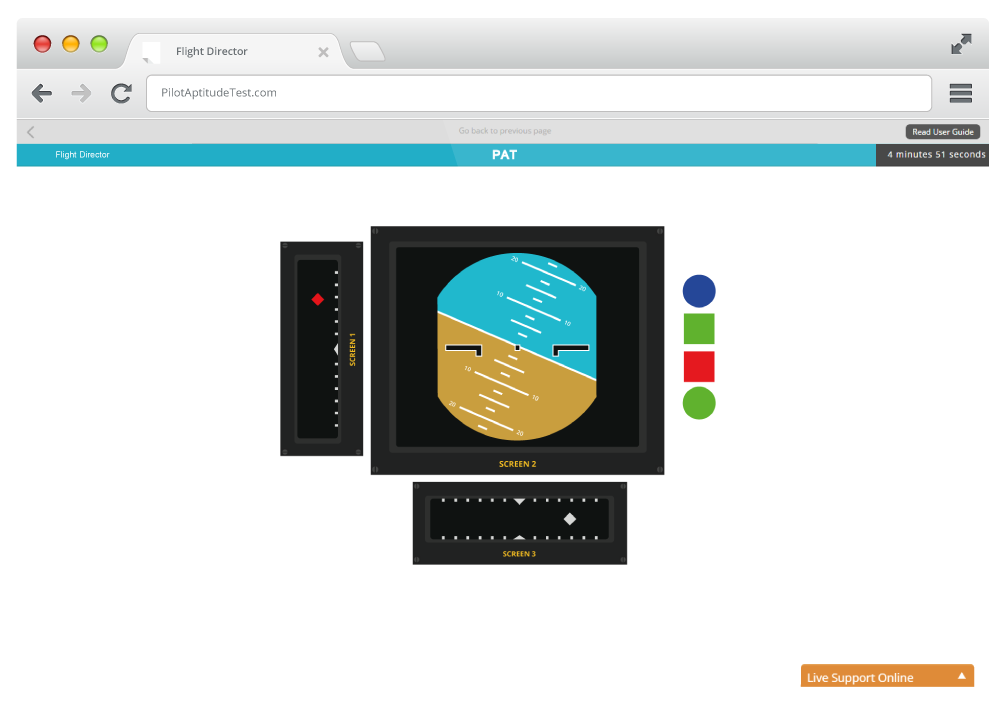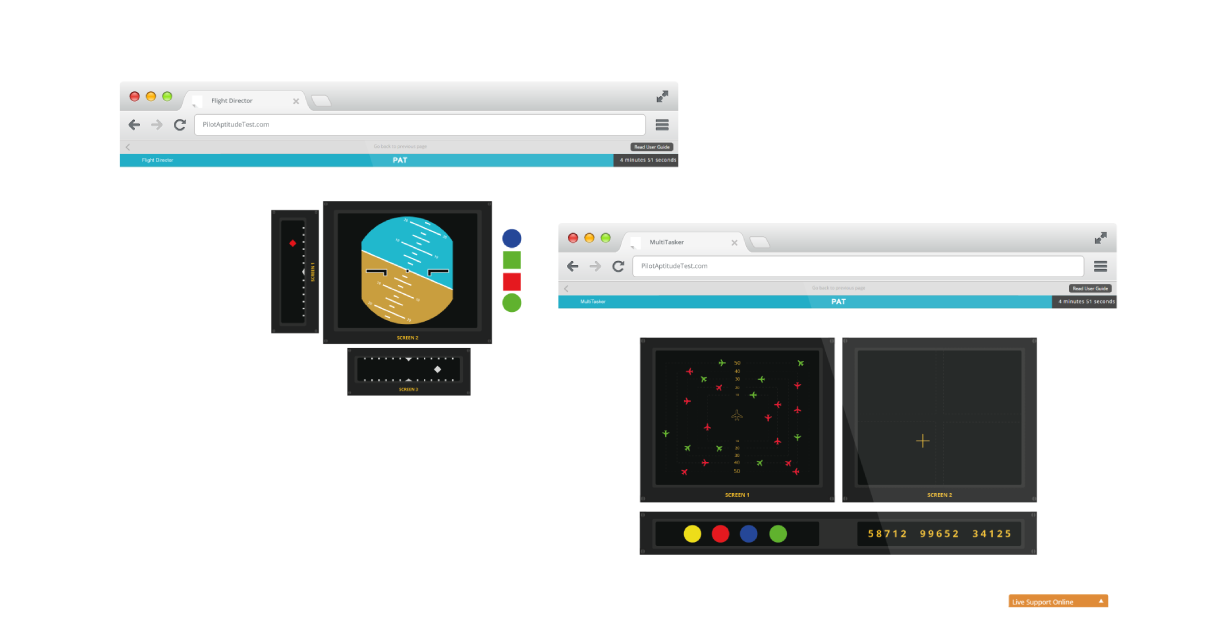Pilapt Software
The 3rd pic down is the only part of the PILAPT test I recognise from the test I took at CTC. One of the others looks to be one of the parts of the multitasking test but tbh i doubt it will help you. That link does not look very good at all. You won't be able to find the exact PILAPT test you will be taking online but all of the key skills you will need for them can be practised by using other aptitude tests. There is a great free one you can take online.
You must have iTunes installed with an active iTunes account in order to download and install the software. Review for Get Your Wings Pilot Training Aptitude.
Again, this is not the same as the PILAPT test but it does help you practise the skills you will need. I hope this helps! Hi jamwo, group games and interviews belong to the so called soft skills, so if you need some help for this very personal aspects you will need professional support. But you also should take in account no psychologist will be able to install 'matrix like' a complete new software in your brain. At the other hand in aviation you've got a wide range of possible profils which are accepted by the flight operations. Best thing is to be able to use your very personal tools (humor, charme, etc.) to aim your targets during an assessment or screening and for this individual case some professional help before performing the test might be helpful. But consider there are a lot of backstage professionals without any professional skills in the air.
In November 2013, I went to a CTC Wings assessment day. I made it all the way through, and would like to share my experience for anyone else hoping to do the same. Below is an abbreviated account of the experience; if you have any questions, feel free to. Intro You’ll be expected to arrive at by 08:30 – retrospectively, my advice would be to book a room there for the night. There will typically be eight of you in total – enough for two groups.
Redeem Your Code

The day starts with a presentation explaining how CTC operates as a company, the course structure, airline placement, and so on. If you’ve done your research, it’ll all be familiar to you.
Group interview There are two tasks to complete in the morning: a group assessment, and a series of aptitude tests. One group does the aptitude tests first, as the other completes the group assessment. Top tip: it makes no difference which way around you do it. CTC use a few different tasks for the group assessment, and you will be asked to complete two of them. The first that we had involved being given about 20 photographs of aviation-related events from history, and as a group we were to place them in chronological order. The task was fairly easy, and most people will be able to relax and focus on coming across as (or better yet, being) a good team member. The second task we had was a “remote island” type of scenario – an interviewer’s staple.
Many of you will already have experience of this sort of group task, and will appreciate that common sense is paramount here. You will be demonstrating to the interviewer your ability to prioritise certain tasks according to the situation’s demands, your ability to work with others to achieve a collective goal, and will be expected to show that you can adapt yourself as the scenario changes. My approach to the second task was to start the group discussion by suggesting how the group might carry out the practicalities of the task, and making efforts to reach a consensus on any decisions the team must make. I would suggest seeking the opinions of everyone in your group before proceeding with anything, if they don’t offer it themselves. More generally, you should think about – for instance, cooperative and decisive – and what you can do to demonstrate how you fulfil these criteria. Most importantly, don’t worry – most of this will come across naturally, and everyone will have some areas of weakness.
This is allowed, even in pilots. Just remember to relax and contribute.
After finishing the group interview, you’ll be asked to spend five minutes filling out a self-assessment form, including reflecting on what you contributed to the group. They say that you’re not assessed on your answers to these questions. Aptitude tests Here’s what I remember of it. My advice: save your money on expensive aptitude tests (except for expensive aptitude test), and practise your mental arithmetic. Maths test: easy Fifteen questions in as many minutes; pen and paper, no calculators. The questions are mostly practical applications of long division and multiplication, for example currency conversion.
I practised these for half an hour each day before the assessment, and got full marks. I recommend for revision. Crosshairs: easy Keep the crosshair centred. It’s very responsive. Patterns: medium Your task is to spot abstract shapes in two images. I would suggest using all the time you have to make sure that you get it right.
Orientation: medium There are three men holding a shape in each hand. You will enter the number of those men meeting the verbal criteria given through your headphones. Your response time available decreases, but most people develop methods of ensuring that they can interpret and respond as quickly as the task demands. Concentration: medium You’ll be looking for shapes of a certain colour within a grid; two will change every second, and when the criteria match, your job is to click on it.
The criteria will change every so often, so memorisation won’t help in this task. This task may fatigue you after a while, so make the most of the breaks given to you.
Again, there are ways of managing all of this information so you can quickly and correctly process it, and this should soon become apparent. Countdown: easy You start with a three-digit number, and a single-digit number, which is the rate at which the computer will count down. This rate will eventually change, and you’ll need to respond – the computer then carries on at this new rate.
When it changes again, respond again. Keep on top of it and you’ll be fine. Crosshairs + countdown: medium Complete the crosshairs task from the beginning of the test while continuing to count down. You will need to keep the countdown rate at the forefront of your mind to successfully manage this one.
Crosshairs + countdown + shapes: hard This is the one you’ll all be talking about at lunch. Fortunately, I know from experience that the raw scores for this task do not indicate whether you will pass or fail the aptitude test as a whole. If you have ever attended a and had a chance to try GAPAN’s free mini-aptitude test – something definitely worth queuing for – you will recognise elements of this task. My advice would be to avoid false positives, and to focus on what would be important if this were inside a cockpit – so fly the plane above other tasks. Interview After lunch, you’ll be separated once again – but this time, into the fortunate and unfortunate. Assuming that you have passed, you will then have a brief explanation of the remaining interview process, followed by an awkward re-grouping in which you offer platitudes to those not so lucky on this attempt. The interview itself will typically last 45 minutes, and you will have an opportunity to ask any remaining questions.
Speak slowly and clearly, as they’re writing down practically every word. Most of the questions are competency-based, although you will also be expected to demonstrate a good understanding of the training programme, the airline industry, and so on. For specific potential questions, I compiled a, but search for yourself too. My strategy in preparation, aside from developing answers for individual questions, was to prepare several stories that showed core competencies they would be looking for: for example, one was about a time where I was responsible for the safety of a group of children who were being physically threatened.
The way in which I told it was designed to provide the interviewer of evidence of my ability to lead, to deal with stress and resolve conflicts, and to adapt my behaviour appropriately when faced with difficult circumstances such as confrontation. Life experience is obviously quite useful here, but if you’re straight out of school, for example, they’ll be cognisant of this – so just reflect on any formative moments in your life, and your behaviour in the past in trying situations.
Everyone has been a leader at some point in their lives. At the end of the interview, you’ll have a chance to say any last words that you wish to have put on record – this is written down verbatim, so since you have a chance to prepare this, make it good. Throughout the interview, CTC are looking for evidence that you will meet their standards through training, not just in terms of aptitude or intelligence but also – perhaps mainly – motivation to succeed.
(Having now completed ATPL ground school, I can say that motivation may have been the principal determinant of our achievement so far.) Yes, CTC is a owned by, so they are naturally keen to see your money – flight training schools that aren’t tend not to last long – but they also have a vested interest in seeing everyone on their courses succeed. If you show potential in your assessment day, then they will develop you into an airline pilot. The next day, you’ll receive a life-changing phone call, and the adventure begins. Preparation If you’re working or studying full-time, preparing fully can be a struggle.

I was able to take two days’ holiday before my interview, which was invaluable, but the preparation started about a month before in my spare time. As I said before, learn not to rely on calculators and practise arithmetic whenever you can.
Not only is it going to make the day less stressful, but it will be very useful for checking gross errors, a vital task in this career. Learn about the industry you’re joining. Know its history, particularly of the airlines you may be working for.
(0 fans) Cascada ( /kəˈskɑːdə/) is a German Eurodance act founded in 2004. And in recent years worldwide, aiding in the transition to a more electro-pop oriented mainstream sound. They are widely considered one of the leaders in popularising Eurodance in the U.S. Every time touch we. They are best known for their hit singles 'Everytime We Touch', 'What Hurts the Most', and 'Evacuate the Dancefloor'. Cascada is a group of three musicians: Natalie Horler, DJ Manian, and Yann Peifer.

You won’t be asked directly about this during a Wings interview, however you’ll need to demonstrate your knowledge in this area. You’ll also need to determine what, and how you can demonstrate them. Don’t bother with PILAPT or other paid online aptitude tests – if you want a benchmark of your aptitude , try a, or if you have the money to spare, invest in the much more helpful test. Perfect your interview technique. Talk to yourself until you’ve stopped cringing and are comfortable with giving lengthy answers and telling your anecdotes – have a friend interview you and record yourself if you can.
I got through this, you can too. Recommended reading.